Actualités
Des loups à crinière se noient dans une ferme soutenue par Rabobank ; le gouvernement de l’État exige des mesures
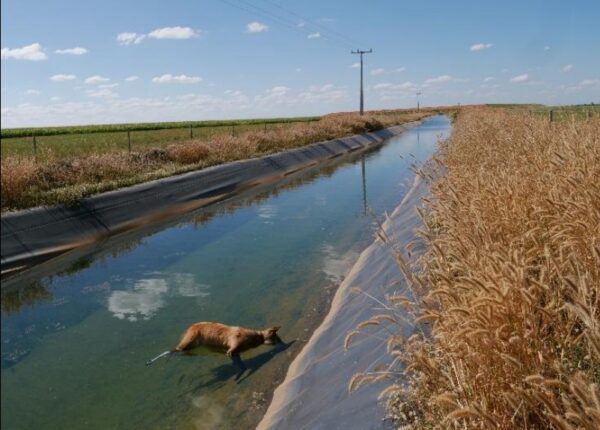
Animals were found dead in the irrigation canals of the Alto Jaborandi Farm, in Bahia state, in the northeast of Brazil; the farmer obtained resources from a federal program that funds irrigation works in the region
THREE MANED WOLVES drowned in the irrigation canals of the Alto Jaborandi Farm, a property dedicated to grain cultivation in western Bahia, in the northeast of Brazil. Lined with a slippery tarp, these “artificial rivers” lacked proper protection to prevent animals from entering, according to the Bahia Institute of Environment and Water Resources (Inema).
The state agency fined the farm and is demanding the implementation of adequate protective measures. The drowning of wild animals in these canals has become a regional issue, concerning environmentalists and authorities.
The owner of the property where the bodies were found, between June and August 2023, is José Fava Neto, a farmer and regional director of the Soybean Producers Association (Aprosoja) in Goiás.
In 2020, he secured loans from the Irrigated Agriculture Financing Program (Proirriga) for irrigation works. These loans were funded by the National Bank for Economic and Social Development (BNDES) and mediated by the Dutch Rabobank, which claims to be “world’s largest food and agribusiness bank.”
The Alto Jaborandi Farm is located near the Grande Sertão Veredas National Park, considered a sanctuary for endangered species, one of which is the maned wolf, classified as vulnerable to extinction. “These species do not remain solely within the protected area. They will reproduce and colonize adjacent areas,” explains Rogério Cunha de Paula, coordinator of the National Center for Research on Carnivore Conservation at the Chico Mendes Institute for Biodiversity Conservation (ICMBio).
The park is surrounded by farms cultivating soybeans, cotton, sorghum, corn, and tobacco. Given the region’s water scarcity, these farms construct large reservoirs and water channels to irrigate their crops, with lengths reaching 15 to 20 km.
The irrigation canals are lined with a tarp that lacks grip (see photos below), preventing animals from escaping. Images taken at the Alto Jaborandi Farm show scratch marks on the canal edges, indicating the animals tried to escape before drowning.
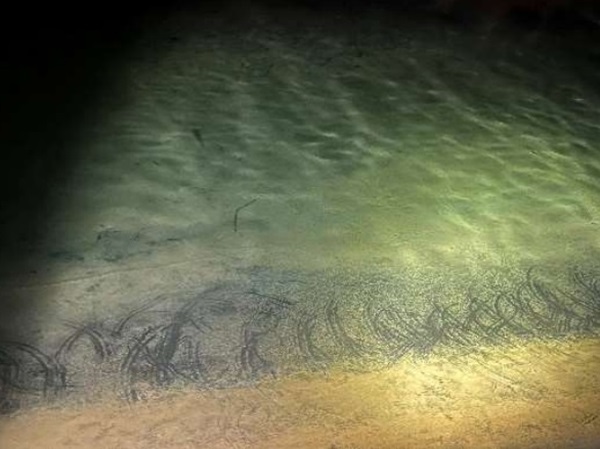
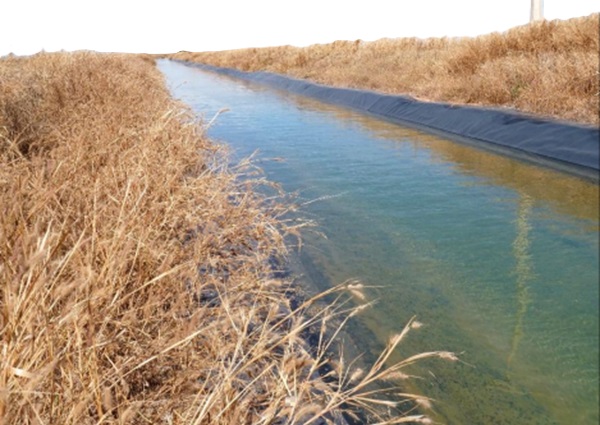
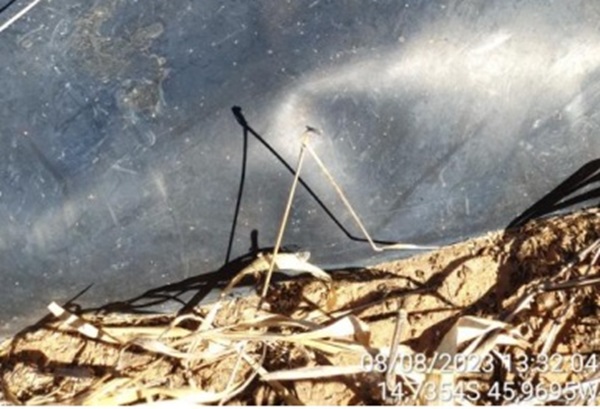


Family drowned in irrigation canals
Formoso, a one-year-old maned wolf, was the first to be found drowned. His body was discovered floating in a farm canal on June 3, 2023. Three weeks later, on June 26, the decomposed body of his mother, the wolf Nhorinhá, was found at the same location. Just over a month later, on August 6, the body of Urucuia, another of Nhorinhá’s pups, was also found on the farm.
All three maned wolves were being monitored via a collar that transmitted their location to Onçafari, a non-governmental organization working on species conservation and ecotourism. This tracking led to the discovery of their deaths.
“Imagine the number of other animals that die in these structures without our knowledge, as it depends on reports from the farm itself or more frequent inspections, which we know do not happen,” says Rodrigo Gerhardt, Wildlife Campaigns Manager at World Animal Protection.
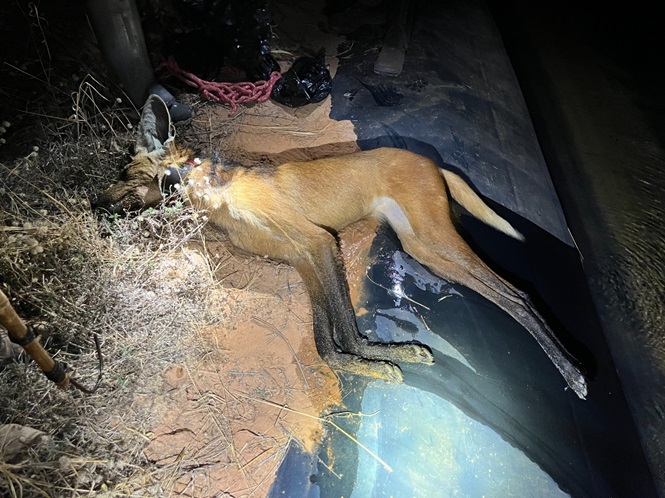
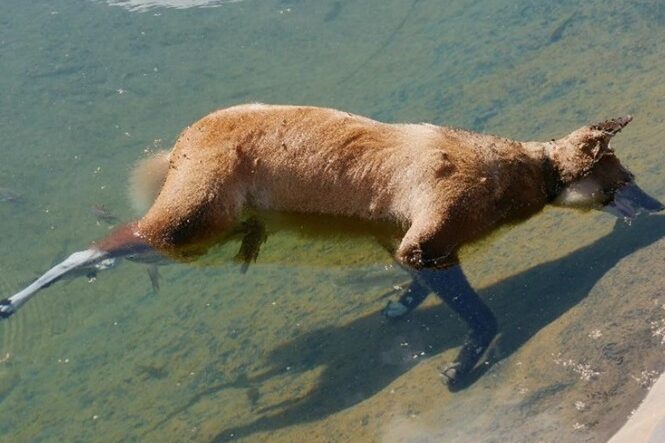
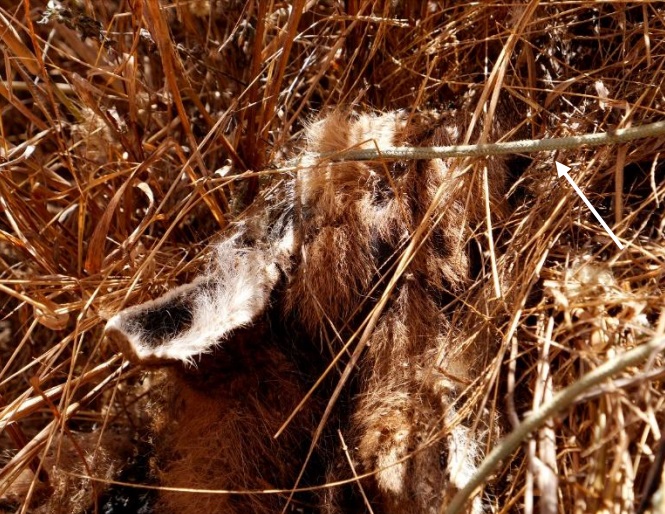

Repórter Brasil tried to contact José Fava Neto for comments, but received no response by the time of publication. The space remains open for future statements.
Danger for the entire region’s wildlife
Days after the deaths were confirmed, Onçafari presented the case to ICMBio and Inema. Between August and October 2023, the two environmental agencies inspected the canals at Alto Jaborandi Farm and three neighboring properties.
According to ICMBio and Inema, some sections of the canals lacked adequate protection—such as damaged or too-low fences in the surrounding area—posing a risk to the local wildlife.
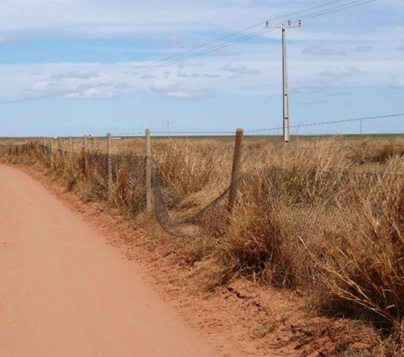
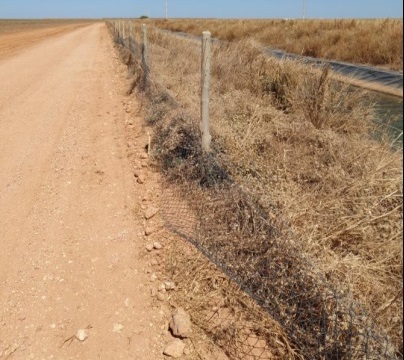


“During inspections, numerous carcasses of local wild animals were found, some showing signs of recent death. Burnt bones were also found, likely to reduce odor and prevent attracting other animals and contamination,” states a technical note from Inema, accessed by Repórter Brasil.
Carcasses were also identified at Karitel Farm, a neighboring property belonging to the Santa Colomba group, a producer of grains, coffee, cotton, and tobacco in western Bahia.
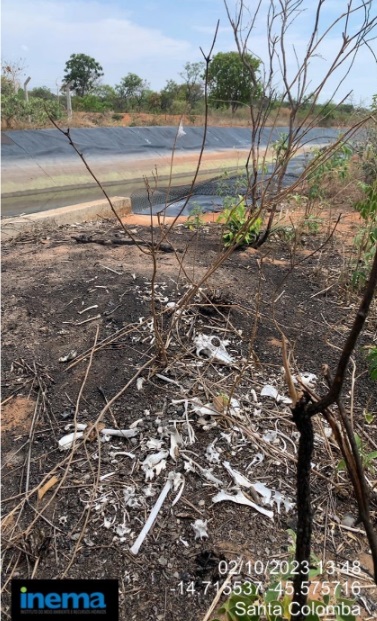
In November 2023, Inema fined both farms USD 36,836 (BRL 200,000). In his defense, presented to the environmental agency, José Fava Neto requested the fine be dismissed, claiming that during an inspection on August 8, 2023, “at no point were maned wolves found in our canals or reservoirs.”
Nevertheless, Inema upheld the fine, stating that the issue, beyond the deaths, was the failure to implement adequate protective measures at the sites where the animals died.
When questioned by Repórter Brasil, Santa Colomba stated that it holds “the necessary environmental licenses for the use of the water transfer canals to irrigate its productive areas” and that it “regrets any loss of wildlife in the region.” The group also claimed to have a team of veterinarians and biologists that monitors and rescues animals roaming their properties. See the full statement here.
Funding for irrigation works
In 2020, Fava Neto secured two loans totaling just over USD 902,340 (BRl 4.9 million) from Proirriga for irrigation works. The loans remain active, with amortization dates through 2030.
The loans made by the farmer with BNDES resources were under the “automatic indirect” modality. In such operations, responsibility for assessing the environmental compliance of the client lies with the intermediary bank—in this case, Rabobank.
“There’s a lot of talk about mapping the entire supply chain, but we forget that there’s a bank financing it behind the scenes. If the bank wasn’t financing, this activity might not be happening,” comments Júlia Dias, Coordinator of the Responsible and Sustainable Consumption Program at the Consumer Defense Institute (Idec).
Idec is part of a coalition that launched the Responsible Banks Guide (GBR), which analyzes the social and environmental policies of financial institutions. “If the bank is granting credit to an agribusiness company that is violating rights, we believe it holds objective and joint responsibility for the loan and the violation,” says Dias.
BNDES stated that, to date, it had not been notified by the financial agent about any irregularities in the credit operations identified by the report. The institution further mentioned that, based on the facts presented by Repórter Brasil, it would request clarifications from Rabobank, and “in the event of a breach of regulations and legislation, penalties will be imposed on the financial institution.”
When contacted by the report, Rabobank stated that it does not comment on specific cases and that its process for analyzing information related to clients, potential clients, or suppliers “is robust and complies with Brazilian legislation.” The institution did not respond to whether it assesses the potential negative impact on wildlife from the enterprises it finances.
The Santa Colomba group also obtained two loans totaling USD 17 million (BRL 93.2 million) from the Northeast Constitutional Financing Fund (FNE) for irrigation works in 2023. Banco do Nordeste, responsible for granting the credit, stated that it “values transparency and socio-environmental responsibility in all its operations” and that the loans granted by the institution include an analysis of the enterprise’s compliance with environmental regulations.
See the full statements from the banks here.
The reporting of this story was supported by Brighter Green’s Animals and Biodiversity Reporting Fund.
Lien original: https://reporterbrasil.org.br/2024/10/maned-wolves-drown-farm-supported-rabobank-state-government-demands-action/